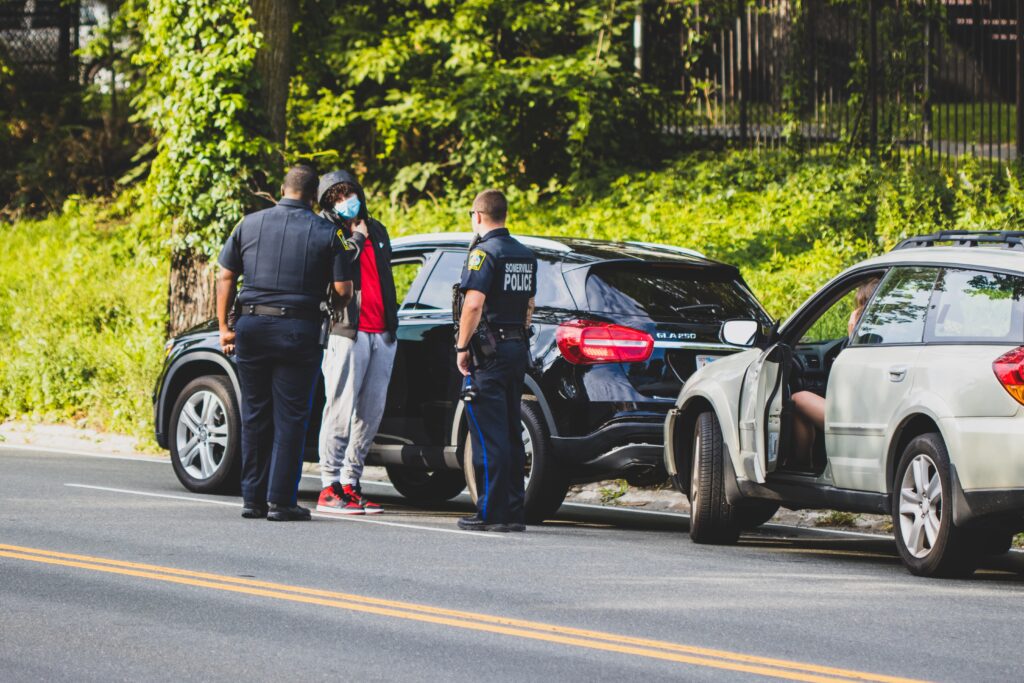
Car accidents: they can happen in the blink of an eye. Once the shock wears off, witnessing one can leave you with questions. That’s why the Law Office of Arthur Crum, PA, has put together a list of the dos and don’ts you need to know before you become a traffic accident witness.
Do
Ensure Your Safety First: Stay calm, remain cool, and collect yourself before responding. If able, immediately pull over to the side of the road and attempt to keep a 100-foot distance between you and the accident scene, then turn on your hazard lights. Keep your vehicle clear of inbound traffic, broken glass, fuel leaks, and flames.
Call 911: Call first responders immediately. Never assume someone else will. Even if a crash looks like a minor fender bender, always confirm what you saw. Some states require witnesses to pull over and report, so know the laws concerning car accident witnesses in your area.
Check on All Victims: Once you and your automobile are safe and have alerted the police, check crash victims’ conditions. Make sure that they are safe and help if able. Although this can be a heated or emotional moment for those involved, remember you are a witness who needs to stick to the facts of what you observed. Do not assess blame on anyone nor pass judgment.
Stabilize Vehicles and Victims: If a vehicle fire is imminent, help drivers and passengers to safety. Otherwise, do not move injured parties. Although you may want to rush to help, you could unintentionally make their injury worse. Let the medical professionals do their job. Comfort and reassure those hurt that help is coming.
Provide a Statement and Contact Information: Give the authorities all relevant facts and contact information. You may be asked down the road for more details or to be a source for insurance agents, medical claims, or the authorities. Always be honest and factual, and stay consistent with your account.
Don’t
Rush Onto the Scene: Being cautious is critical. Although you may want to leap into action to help, be careful. The last thing you want is to become an additional victim when paramedics arrive.
Fear Liability: Many states across the US, including Pennsylvania, Maryland, Virginia, and the city of Washington, DC, have Good Samaritan laws in place. If responders are delayed, and someone urgently needs help, you are not liable for civil damages for giving emergency aid in good faith.
Allow Drivers to Leave the Scene Early: There’s no need to get your security guard skills ready and restrain anyone, yet ensuring information is exchanged between parties before anyone leaves the scene is vital. Jot down license plates, and remind people of the consequences of going before the authorities arrive.
Chase Hit-and-Run Drivers: If you witnessed a hit-and-run, your account of what happened is crucial. You may have seen a detail, big or small, that can help crack the case. Rather than chase the offender down, write down every fresh fact and check on the victims.
Ignore a Court Subpoena: If a judge orders you to testify, show up promptly on the assigned date and time. Failing to do so is against the law, meaning you could be held in contempt. Never risk jail time and always appear when ordered by the court.
Be Afraid to Contact an Attorney: If you witnessed a horrific accident and are concerned about your role in helping victims or what it means to be called to testify, give us a call. Our office is here to help with concerns and questions you may have during the legal process.
Clients are always our first priority. That’s why your initial consultation is free, and there are no legal fees or costs until Arthur Crum recovers for you.

